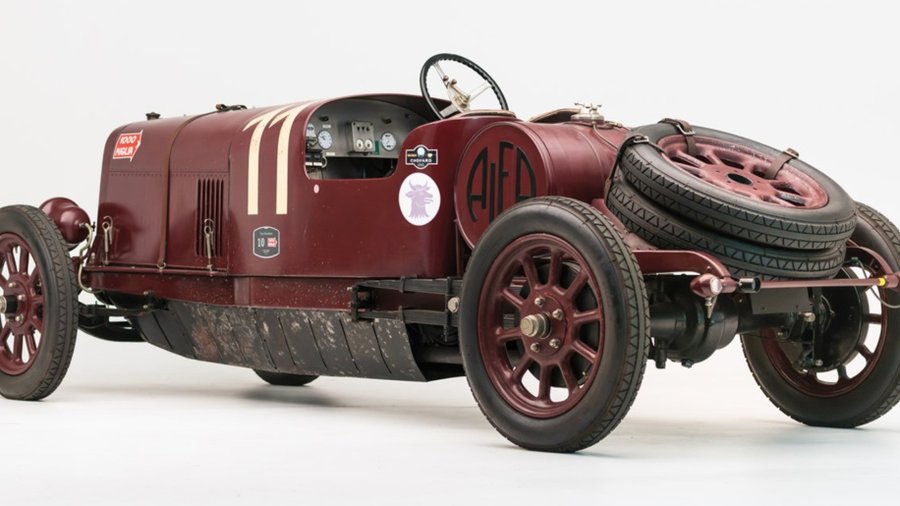Vintage 1921 Alfa Romeo G1 rally car hits RM Sotheby’s

It's one of only 52 examples, including two prototypes, built between 1921 and 1923, and the only known surviving member of the series, stamped chassis No. 6018. It spent many years on a remote farm in Australia, during part of which the engine was put to work powering a water pump, before undergoing a restoration sometime in the mid-1960s.
The G1 is powered by a 6.3-liter side-valve inline six that was said to have been designed with input from Enzo Ferrari, then a driver for the company, and was the largest motor ever fitted to an Alfa. It was based on two cast-iron three-cylinder blocks with fixed cylinder heads, a cylinder bore of 98 millimeters and a stroke of 140 mm to make 71 horsepower and 216 pound-feet of torque, with a top speed of 86 mph. It has a four-speed manual gearbox, which sends power to the rear axle through a single-dry plate clutch and an open driveshaft.
The G1 was built to support Alfa Romeo's racing activities and was marketed to the same upscale clientele as Rolls-Royce, Hispano Suiza and others. A stripped-down version of the car won its production class at the Coppa del Garda, according to RM Sotheby's, but the production version suffered for being an expensive fuel guzzler at a time of economic and political chaos in Italy following World War I. So the company exported all 50 production versions to Australia (and possibly to South Africa), where this one was picked up by a Queensland businessman, who later went into bankruptcy and sent the car to a farm in the Outback to hide it from creditors. Ranch workers reportedly found it in the late '40s and used it as a farm runabout before the rear axle failed and the engine was used for the water pump.
The remains of the G1 were acquired by a man named Ross Flewell-Smith, who would restore it over 10 years, including finding authentic replacement parts. It would undergo three full restorations in subsequent years.
Related News
